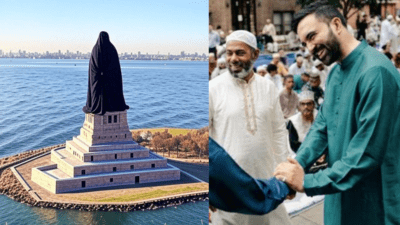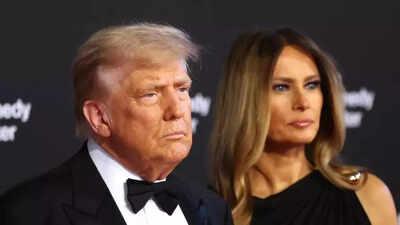Can India push Pakistan into FATF’s ‘Grey list’?

Story so far: In a rare show of condemnation, the Financial Action Task Force (FATF), on June 16, 2025, stated that the Pahalgam terror “could not occur without money and the means to move funds between terrorist supporters”. FATF’s has released such a statement only twice in this decade — for the Paris terror attack (2015) and the Pulwama attack (2019). The terror watchdog’s stern stance has given hope for India to push its case to bring Pakistan back into the ‘grey list’ for violating the FATF’s policy on terror-funding.
Also Read: The lists of the FATF and Pakistan’s position
Apart from condemnation, FATF will release a report next month, which will include state-sponsorship as a separate source of funding for terror. The Hindu reported that the FATF has also developed a Terror Financing Risk & Context toolkit for assessors, so that countries cannot “fool them with lies” on terror financing risks from their jurisdictions. Pakistan has been placed ‘thrice’ in the ‘grey’ list of the FATF after it failed to take adequate measures to curb terror financing and money laundering.
FATF first placed Pakistan on the grey list in 2008 after it failed to fight terror financing and money laundering. After cooperating with FATF’s mutual evaluations, Pakistan was given an action plan to stop criminalisation of money laundering, identify, freeze and confiscate terrorist assets. It was removed from the list in 2015 owing to its progress but was reinstated in 2018.

Failing to fulfill the first FATF plan, Pakistan was prescribed another seven-point action plan. While it completed 32 of the total 34 action items in the two plans in 2021, Pakistan was retained in the grey list. In October 2022, the country was finally removed from the list after it fulfilled all 34 action items by passing laws tackling money laundering, terror-financing, maintaining a database of terrorists and terror groups, and convicting terrorists such as Hafiz Saeed, Zakiur Rehman Lakhvi, Sajid Mir, and Rauf Asghar. However, Islamabad claims it couldn’t trace Jaish-e-Mohammed chief Masood Azhar, a UN designated terrorist, and the mastermind of the 2019 Pulwama terror attack.
How will FATF’s condemnation affect Pakistan?
“FATF has very rarely condemned terror killings. It is only when it is an attack of high intensity or highly political in nature that it has come out and condemned it. However, there are limitations to it. The funding trail has to be established, which is being done by the Government of India, via diplomacy and parliamentary delegations. Maybe the FATF’s condemnation, though late, has come out after conversations with these delegations,” says Dr. Manish Dabhade, Assistant Professor at Jawaharlal Nehru University’s Centre for International Politics, Organisation & Disarmament.
Aishwaria Sonavane, Geopolitical Analyst at The Takshashila Institution, says that FATF’s statement strengthens India’s case against Pakistan to the global community, but is unlikely to translate into any meaningful action. “While India may sort of leverage FATF condemnation, isolating Pakistan diplomatically is far-fetched,” says Ms. Sonavane.
Putting Pakistan in the ‘Grey’ list alone will not suffice, says Mr. Dabhade, stating that this will not put economic sanctions on Islamabad. “Only when they are in the black list will it negatively affect Pakistan. In the grey list the FATF only names and shames the country, so when investors i.e. FDIs flow into Pakistan, they will be acknowledging the risk involved. But when it is in the black list, it is about actually taking steps which will affect investments into Pakistan,” suggests Dr. Dabhade.

Can India ‘push’ Pakistan back into ‘Grey’ List?
In the wake of Operation Sindoor, Mr. Modi warned Pakistan, “Talks and terror cannot go together, terror and trade cannot go together, and water and blood (referring to the suspension of the Indus Waters Treaty) cannot go together. India will not tolerate any nuclear blackmail.”
The current political climate makes it highly unlikely for Pakistan to be pushed into the ‘Grey’ list.
“The process is a political one. Depending on what sort of member states’ support India can garner at the FATF plenary session which will be held in October, what sort of dossiers and financial trails India can establish, it will decide if it is a clear cut case for Pakistan to be put back in the ‘Grey’ list,” says Mr. Dabhade. He adds that India would have to spend its political capital abroad with the 30–odd countries who will decide on the case. The seven all-party delegations sent by India after the Pahalgam terror attack and India’s response, covered about half of the FATF member states.
Explaining how stakeholders like China and the US are unlikely to support any punitive action on Pakistan, Ms. Sonavane says, “Beijing has its stakes in Islamabad with its China-Pakistan Economic Corridor. They have time and again supported Pakistan on international platforms. The recent optics also suggest that Pakistan does retain strategic significance for Washington”.
Can FATF’s new ‘toolkit’ call Pakistan’s bluff?
Both experts don’t think the Terror Financing Risk & Context toolkit could deter Pakistan. “It feels like a cosmetic eyewash. Though India can definitely utilise these tools to advance its narrative, and present evidence before the international community as much as possible. Grey-listing will risk Pakistan’s economy, which will have a destabilising effect in Afghanistan. This is something that the US cannot afford to do,” they observe.
Who does the current political climate favour?
On June 19, US President Donald Trump hosted Pakistan’s Chief of Army Staff Field Marshal Asim Munir for lunch at the White House and thanked him for ‘not going to war with India’. The unprecedented hosting of an Army chief rather than the Head of the State by a US President has raised eyebrows in India.
“It is a big bump for India-US ties under Trump, seeing that it was Prime Minister Modi who met Trump earlier in his Presidency, which indicated that things would smoothen out and that they were clinching a trade deal. But in the long term, we (India) know that there are going to allies like US and Israel that are going to be there sometimes and not at other times. We have to make the best use of whatever military equipment we have bought and know that in this fight (with Pakistan) we are own,” opines Mr. Dabhade.
Drawing parallels to the post-26/11 period, he adds, “India was shouting from the rooftops about how we were being affected by cross-border terrorism. While everyone accepted our concerns, they (global powers) said ‘talk about Kashmir’ and that has what the case has been reverted to now – the hyphenation of India and Pakistan”.
However, Ms. Sonavane plays down the impact of the Trump-Munir lunch on India. “There are no surprises that the Pakistani military is strategically important to the US. The Trump-Munir lunch had less to do with India and more with regards to Iran and Afghanistan. Pakistan is seeking to appease the Trump administration in many ways. It is opening up to Bitcoin mining, which has ties to the Trump family,” she says, adding that India-US ties will continue to grow in its own irrespective of the Pakistan factor.
Published – June 26, 2025 12:33 pm IST






